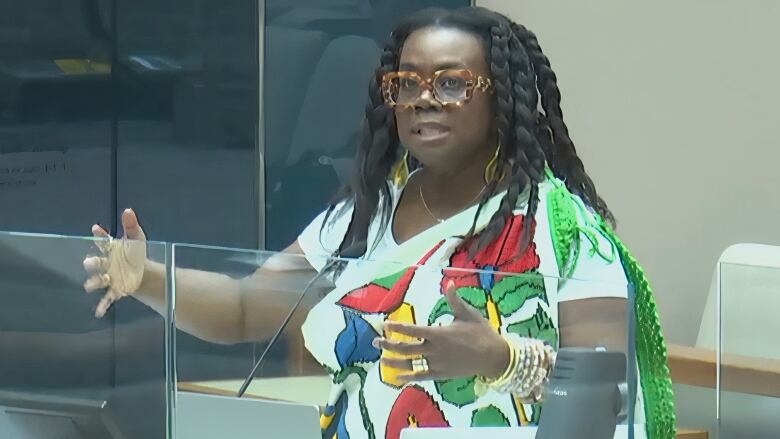Council unanimously adopts anti-racism strategy for City of Calgary
Recommendations include anti-racism training and equitable programming

The City of Calgary has adopted a new guiding document to tackle systemic racism within the organization and more broadlyacross the city.
Council voted unanimously to accept the Dismantling Systemic Racism, Transforming Lives: City of Calgary Anti-Racism Strategic Plan.
The goal is to ensure all Calgarians no matter their race have equitable access to the city's programs and services and that municipal employees can thrive within the organization.
The plan is the result of a culminationcommunity activism effort in Calgary thatbegan in the summer 2020 after the killing of George Floyd, a Black American who was murdered byMinneapolis police. Global protests sprung up,including several in Calgary.

In response, the city passed a June 2020 motion that included actions like anti-racism training for council members and administration, steps for accountability on anti-racism work by Calgary police, a public consultation on systemic racism and the promise of an anti-racism action committeethat would develop a community action strategy for the city.
In July 2020, more than 72,000 people signed a online petitionled by the Canadian Cultural Mosaic Foundation asking the city to tackle systemic racism.
"We heard very clearly from Calgarians that they were experiencing racism and they needed us to step up and do something about it to make a commitment to become an anti-racist city," said Mayor Jyoti Gondek.
"Today wasa good day."
What the plan outlines
Linda Kongnetiman, the city's managing lead for the anti-racism program, presented the reportat council on Tuesday.
She said the document can be used to help the city ultimately become "racially just."
It detailed fives areas of focus:
- Developing and implementing anti-racism education and training.
- Promoting and integrating disaggregate race-based data.
- Increasing representation of Indigenous, Black and diverse racializedpeoplein the positions of leadership.
- Developing, promoting and delivering racially equitable programs, services and policies.
- Creating anti-racist safe-spaces and processes that are free from hate.
Coun.Courtney Walcott sees the report as one step on a long road.
"We're doing the easywork right now. The easy work is approving statements and suggesting actions,"said the Ward 8 representative.
LISTEN |Coun.Courtney Walcottexplains what prompted councilto adopt the strategy:
He said approving strategic policy directions over the coming years will be more important.
"That'll be the day when it's really significant," Walcott said."It's to see that at the end of this process have we stood on our morals and voted 'yes' to every single one that comes forward not just an action plan but the actual work that comes from an action plan?"
The city has pledged to measure, evaluateand share the progress of the plan.
For more stories about the experiences of Black Canadians from anti-Black racism to success stories within the Black community check out Being Black in Canada, a CBC project Black Canadians can be proud of. You can read more stories here.

With files from Helen Pike and Jennifer Dorozio












_(720p).jpg)


 OFFICIAL HD MUSIC VIDEO.jpg)
.jpg)



























































































